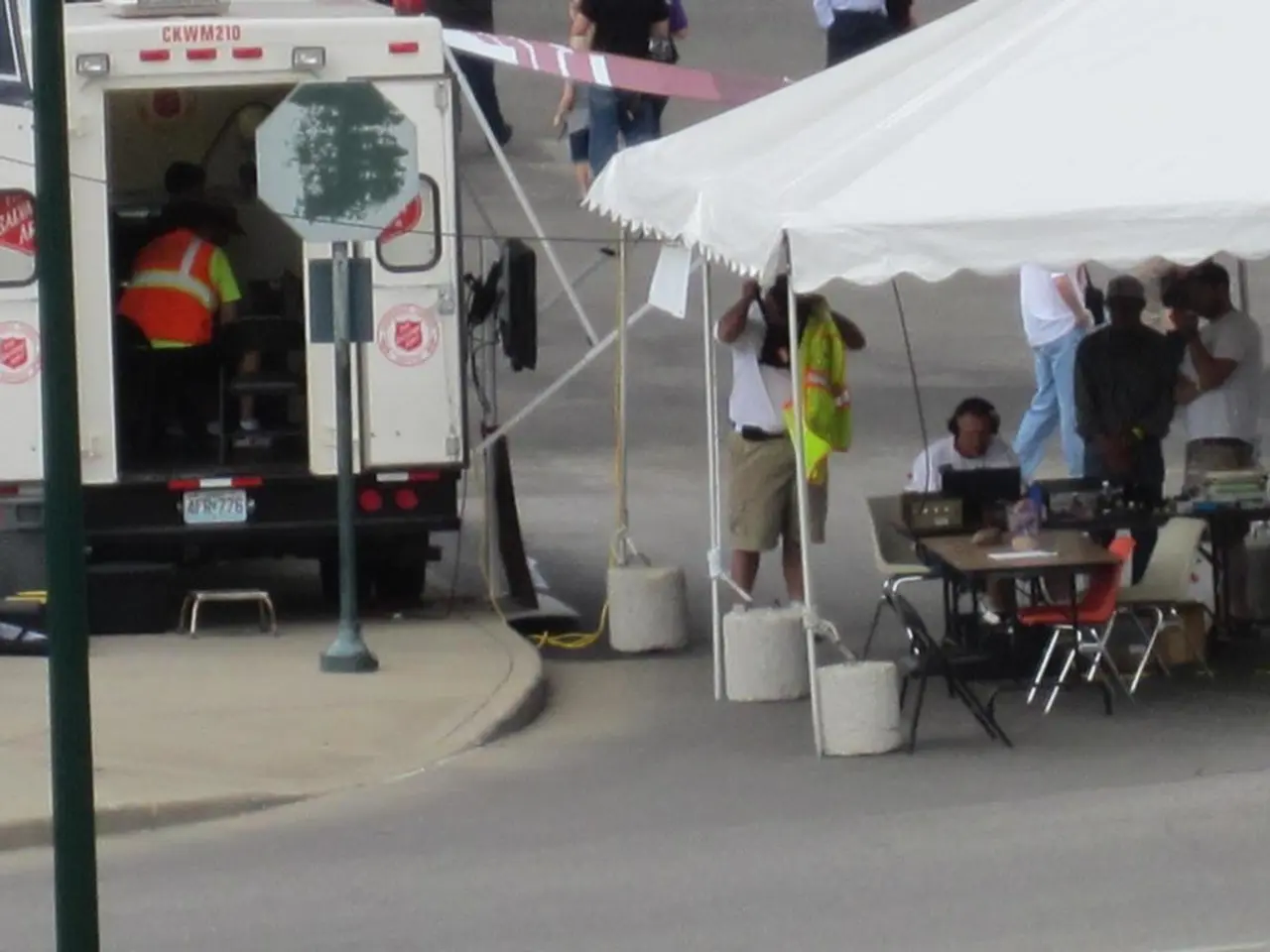Increasing Deployments for Volunteer Emergency Responders in Bavaria on the Rise - Emergency Responders Aided by Volunteers in Bavaria
In the German state of Bavaria, the number of volunteer first responders is on the rise, playing an increasingly important role in emergency situations. These volunteers, often part of the Helfer vor Ort (Help on Site) and Mobile Retter (Mobile Rescuer) networks, are deployed in cases where they can reach the scene of an emergency faster than the emergency services or when the nearest rescue vehicle is still in use.
The Region der Lebensretter (The Network of Lifesavers) association, which oversees these volunteer groups, has control center locations in Kempten im Allgäu, Donau-Iller, Nuremberg, Oberpfalz-Nord, with Augsburg and Coburg in preparation. In Bavaria, the association boasts 5,870 volunteers, with the majority active in Cham, Neumarkt, Regensburg, and Munich. Other locations with active Mobile Retter volunteers include Ingolstadt, Straubing, Landsberg am Lech, and Deggendorf.
When on the scene, each Helfer vor Ort volunteer is equipped with a comprehensive emergency kit, including blood pressure and blood sugar testing devices, bandages, and breathing equipment. These volunteers bridge the time until regular emergency services arrive in cases of cardiac arrest, a situation where time is of the essence, with irreversible brain damage occurring after just three to five minutes.
To become an on-call volunteer first aider, one must be of full age, possess the maturity, physical, and health fitness required for the activity, and have basic qualifications demonstrated through at least 48 hours of training. Regular training with practical exercises of at least four hours per semester is ensured for first aider groups. A deeper training of 80 hours or more is recommended for frequent deployment.
The Bavarian Ministry of the Interior expresses support for first responder projects, stating they can help strengthen the fastest and best possible care of medical emergencies in the state of Bavaria. The Ministry, however, does not provide state funding or central monitoring for organized first aid, which is not part of the rescue service.
While no comprehensive, up-to-date numbers on first responder units in the Free State or details on individual projects are available from the Bavarian Ministry of the Interior, the use of volunteer first responders alerted via app has significantly increased, with over 3,602 incidents assisted in 2024, up from 1,950 in 2023. Since the service began in Bavaria, Mobile Retter volunteers have saved nearly 10,000 lives.
The Bavarian Red Cross (BRK) has also set up a network of volunteers with their Helfer vor Ort program. However, specific information about the number of registered volunteer first responders via app in each major city in Bavaria is not readily available. For precise numbers, it would be advisable to consult official sources such as the Bavarian State Ministry of the Interior, local fire departments, or the specific app platforms coordinating these volunteers. These entities sometimes release periodic statistics or reports on volunteer engagement by city or region but such data did not appear in the search results.
- Community aid, such as the volunteer first responder groups in the less favored regions of Bavaria, plays a crucial role in the health-and-wellness sector, especially during emergencies, bridging the time before regular emergency services arrive, which can significantly impact outcomes, especially in cases of cardiac arrest.
- In the realm of science, the advancements and growth in the number of volunteer first responders in Bavaria, particularly those involved in the fitness-and-exercise-demanding role of Mobile Retter, have been notable, contributing to the increased health and wellness of the community, as well as saving lives.




